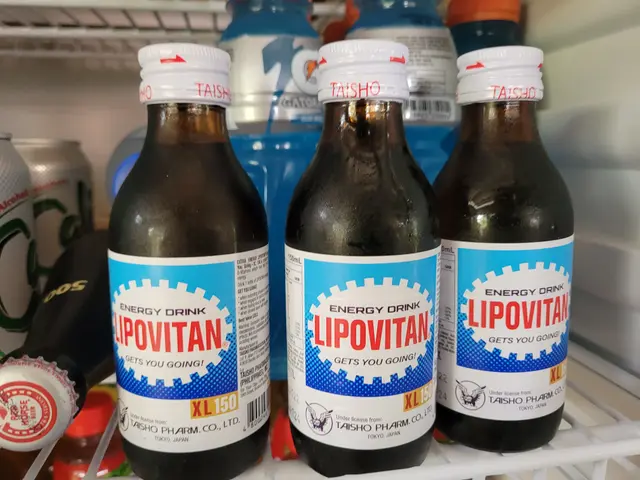Mental Sharpness: Adopting Mediterranean Diet and Active Lifestyle Could Offer Protective Benefits
Kickin' it Old-School with MedWalk: A Game-Changer for Cognitive Health
Researchers are taking things back to the basics with the "MedWalk" intervention, a blend of the traditional Mediterranean diet and regular exercise, focusing on reducing the risk of dementia and cognitive decline. MedWalk is a catchy name for a "Mediterranean diet" combined with "walking."
Previous research has hinted at the positive impact of both a Mediterranean diet and exercise on brain health. This new study aims to confirm the benefits of this combined intervention.
The study, organized by researchers from Australia, New Zealand, and the United Kingdom, is currently underway, despite disruptions by the COVID-19 pandemic. The team has published updates on their methodology and analysis progress in the Journal of Alzheimer's Disease.
Originally designed for a 2-year follow-up period, the study timeline has adjusted to a single year due to pandemic-related challenges. The research is ongoing, with scientists expanding their participant pool.
The researchers' primary interest lies in the 12-month change in visual memory and learning for the participants. In addition, they are investigating the impact of this combined intervention on factors such as mood, quality of life, health costs, cardiovascular health, and arterial stiffness.
The participants for this study are individuals aged 60-90 from South Australia and Victoria, recruited from independent living retirement communities and, due to the pandemic, from the wider community as well. participants have been selected based on their ability to live independently and have no pre-existing cognitive impairments.
Special emphasis is placed on examining biomarkers related to cognitive decline, such as glucose regulation, inflammation, nutrients, and oxidative stress.
Participants are divided into two groups: the MedWalk intervention and a control group maintaining their usual diet and activity level. The MedWalk intervention combines dietary modification with supervised walking, reinforced by psychosocial behavioral change techniques. Participants receive intensive support for the initial 6 months, with ongoing assistance during the next 6 months to ensure continued adherence.
The researchers provide participants with guidance on the differences between the Mediterranean diet and a typical Australian diet to promote a better understanding of the dietary approach. They also offer extra-virgin olive oil and other foods essential for following the Mediterranean diet.
After baseline aerobic fitness assessments, participants participate in group walking sessions for the first 6 months, followed by monthly sessions for the remainder of the trial year.
According to Conner Middelmann, a certified nutritionist specializing in the Mediterranean diet, not involved in the study, studies suggest that following a Mediterranean diet is associated with fewer cases of dementia. Some research even indicates that this diet lowers the risk of Alzheimer's disease, the most common form of dementia. However, it's essential to remember that factors such as genetics, lifestyle, and overall health also play significant roles in determining an individual's risk of dementia. In short, maintaining a healthy diet, like the Mediterranean diet, is just one component of a comprehensive approach to brain health and dementia prevention.
The Mediterranean diet may contribute to brain health by combating oxidative stress and inflammation through its high antioxidant content. It also contains essential omega-3 fatty acids that are crucial for brain health, and research suggests they are linked to improved cognitive function and a reduced risk of cognitive decline. Moreover, the diet helps maintain a balanced gut microbiome, reduces the risk of insulin resistance and inflammation, and discourages the consumption of ultra-processed foods, which have been linked to dementia. Beyond the diet, sharing meals with loved ones and regular exercise - key aspects of the Mediterranean lifestyle - are also associated with brain health.
Walking regularly is linked to slower cognitive decline, with multiple studies indicating that taking at least 10,000 steps a day may lower the risk of dementia by 50%. Walking may improve brain health by increasing blood flow to the brain, enhancing brain activity, reducing stress, and boosting feelings of well-being. Walking might also incorporate social and natural elements, additional benefits for brain health.
By 2023, the data collection period for this study will draw to a close.
Enrichment Data:
- The MedWalk intervention study is an extensive, community-based clinical trial aiming to determine the combined effects of a Mediterranean-style diet and a walking-based exercise program on cognitive decline, dementia risk, and Alzheimer's disease prevention in older adults.
- The study's key components include a Mediterranean diet and a structured walking program, spanning 2 years across multiple sites in Victoria and South Australia.
- More than 364 participants have enrolled in the trial.
- The study's objectives include assessing the impact on memory, attention, mood, stress, physical fitness, and overall wellbeing, as well as investigating heart and artery health, and collecting biological markers.
- Preliminary findings from a pilot study indicated improved memory and thinking for a subgroup of senior participants following both a Mediterranean diet and daily walking for six months.
- A successful translation of these findings into a community-based lifestyle program could offer significant benefits in physical health, social engagement, and economic wellbeing for the aging population, especially considering dementia prevention.
- The study also monitors secondary outcomes such as mood, stress, physical fitness, and wellbeing, offering a holistic assessment of intervention effects.
- The MedWalk intervention study, focusing on cognition, combines a Mediterranean diet with regular walking, aiming to lower dementia and cognitive decline risks.
- The study investigates the 12-month change in visual memory and learning, as well as factors like mood, quality of life, health costs, cardiovascular health, arterial stiffness, inflammation, nutrients, oxidative stress, and mental health.
- The researchers have recruited 364 participants aged 60-90 from South Australia and Victoria, considering their independent living abilities and lack of pre-existing cognitive impairments.
- The study is still ongoing, with adjustments due to the pandemic, and there's an expansion of the participant pool to enroll more individuals.
- Participants are divided into the MedWalk intervention group and a control group, with the MedWalk group following dietary modification and supervised walking, supplemented with psychosocial behavior change techniques.
- The Mediterranean diet may combat oxidative stress and inflammation, provide essential omega-3 fatty acids for brain health, maintain a balanced gut microbiome, reduce the risk of insulin resistance and inflammation, and discourage the consumption of ultra-processed foods, all potentially contributing to brain health and dementia prevention.







